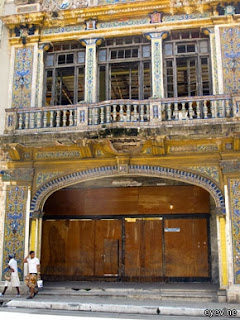JUST OUTSIDE SANTA CLARA, a city in central Cuba, in a hotel that was once a Communist Party hospitality centre, a trio of musicians entertains a large group of German tourists. The trio belts out “Hasta Siempre, Comandante”, an anthem to Che Guevara, whose capture of an armoured train at Santa Clara prompted the collapse of the Batista dictatorship. “I wouldn’t sing this song for an audience of young Cubans. But it has international resonance,” explains one of the trio.
Then they strike up “Chan Chan” from the Buena Vista Social Club. That music is associated with the Batista years, consigning its elderly practitioners to neglect under communism until Ry Cooder, an American, turned them into international superstars in the late 1990s. In a confusion the government has happily exploited, they have become incongruous icons of the Cuban revolutionary myth.
Read the full story here.

Comments
Post a Comment
Thanks for leaving comments. You are making this discussion richer and more beneficial to everyone. Do not hold back.